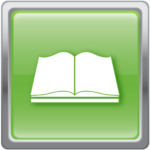< Previous ………. Next Activity >
Reading (“Day 2”)
Students:
3:15 Instructions for Activity 02
Instructors:
Scroll down to find guidelines and suggestions for “Day 2” reading day. From this page, launch the standard “Day 2” instructor presentation. Print student note-capture handouts. Launch a “Day 2” rubric for student review. Optionally, purchase “Day 2” Student Note Capture workbook from Amazon.
Standard “Day 2” Reading Day Material
- Standard Day 2 – Instructor presentation (pdf)
- Standard Day 2 – Student note-capture sheet (pdf)
- Standard Day 2 – Reading Day Rubric (pdf)
Standard Suggestion and Example
After the “Day 1” introduction is completed, we recommend that instructors assign reading from their classroom textbook.
As an example, pages 42-62 introduces “Matter” in the textbook “Physical Science.” In this example, first present the “Day 1” topic 12 introduction. Then assign “Day 2” reading as the next lesson.
- Day 1 – Use introduction lesson (Physical Science topic 12)
- Day 2 – Assign reading from a textbook (e.g., pages 42-62)
Reading Accommodations and Modifications
Some students have IEP modification requirements. Modifications are WHAT students are taught or expected to learn. Alternative textbooks may serve this purpose.
As examples, scan the index of two middle-school textbooks. These are lower-grade-level alternatives. Students needing modification may require an alternative (lower-level) textbook. Lower level textbooks may serve as appropriate modifications. Modifications are WHAT students are taught or expected to learn.
- 7th Grade textbook index1
- 8th Grade textbook index2
Accommodations are HOW students learn. Textbooks on a CD-ROM may serve as an appropriate accommodation. In this example, the CD-ROM may offer the exact word-for-word content as the textbook itself. A student unable to read a textbook due to a variety of limitations might instead be assigned to listen to the content from a CD. Peer reading may be another accommodation approach.
- Education strategies – Differences of accommodation and modification (link)
- Education strategies – Common accommodations and modifications (link)
1 Padilla, M. (2007). Science Explorer: Grade 7. Boston, MA. Pearson-Prentice Hall.
2 Padilla, M. (2007). Science Explorer: Grade 8. Boston, MA. Pearson-Prentice Hall.
Schools Without Adequate Textbooks
When school textbooks are not available, use this site’s “Virtual Science Textbooks” as a stop-gap. For the example shown here, instructors could assign reading from external web pages corresponding to “Introduction to Matter” from our virtual Physical Science textbook.
Day 2 – Lesson 2
- Read Physical 12 – What is Matter
- Read Physical 12 – Matter intro
- Read Physical 12 – Matter advanced
Quick links to our virtual (online) textbooks:
Support Resources on this Site
For student populations that have not previously been required to read and summarize complex text, this site offers two lessons under “Techniques.” Combined, these two lessons provide a foundation for students who are less-skilled at reading and summarizing.
- Technique 10 – How to Read Complex Text
- Technique 11 – How to Summarize Information
Additional Explanation
This activity applies to almost every major topic for the four subject areas. Ideally, students read from their textbook for this activity. Generally, we suggest that the introduction (“Day 1”) lesson precede the reading assignment (“Day 2”). But, of course that is up to the discretion of each educator.
Emphasized ELA Standards
10.4.R.1 Students will increase knowledge of academic, domain-appropriate, grade-level vocabulary to infer meaning of grade-level text.
10.4.R.3 Students will use context clues to determine or clarify the meaning of words or distinguish among multiple-meaning words.
10.6.W.4 Students will synthesize and present information in a report.
